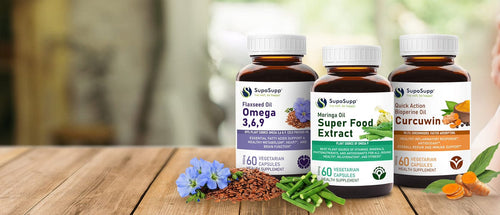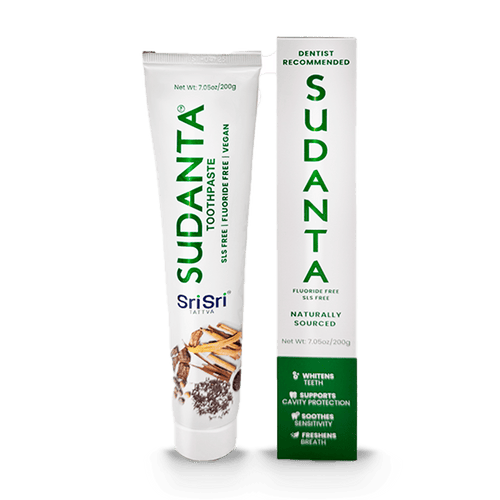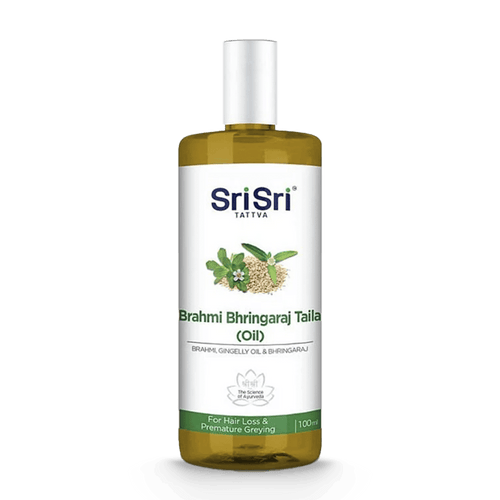It is that time of the year. Incessant sneezing, coughing, flu bouts, skin drying like the trees in winter-itchy, scratchy, and white. From the west coast to the east, people have started layering up but when temperatures drop below zero, nothing seems to help. This time of the year, our bodies are more vulnerable as our immunity stands compromised during winter, and the unrelenting COVID-19 viral strain seems to gain strength. But Ayurveda can help you stay warm, healthy and immune-guarded this winter!
According to Ayurveda, winter is the time when Kapha and Vata qualities dominate in nature. It is heavy, grounding, but also extremely drying, and cold, to the point of being brutal for the skin and body. So our foods and skincare products need to be unctuous and oily, warming and light. At this time of the year, digestive fire happens to be more robust and so our body is able to take oily, unctuous, warm, moist foods better than other times of the year.
1. Have ginger tablets to keep the body warm this winter

Spices like ginger, turmeric, cinnamon, nutmeg, among others help keep your body warm, boosts immunity, and rekindle the digestive fire.
Ayurveda recognizes the connection between the gut and brain health and provides ginger its pride of place in healing this connection. Ginger root offers plenty of preventive and curative benefits against host of illnesses.
One of those rare spices that can work as a flavoring agent; be a potent antiemetic (fights nausea); used as an essential oil; fight menstrual cramps; work wonders for your digestive system as a laxative; reduce flatulence; loaded in anti-microbial, anti-inflammatory, anti-oxidative, antacid, anti-cancerous properties; and works particularly well against degenerative illnesses like rheumatoid arthritis, that gets worse in winter; and other digestive conditions like constipation or ulcers.
Ginger also
- Helps support a healthy respiratory system.
- Helps alleviate allergies and calms sinuses.
- Helps support a healthy reproductive system.
- Helps support a healthy lower back.
2. Include Ghee or clarified butter in your diet

Ghee absorbs fat-soluble vitamins A,D,E and K very well. During winters, when the digestive fire is strong, healthy fats like ghee or clarified butter comes strongly recommended by Ayurveda experts, to be had in food. With more research showing the incredible benefits of clarified butter as a detoxifying and rejuvenating agent, more and more people have started taking it in their diet on a daily basis. If your skin looks dull and dry, it may have something to do with increased Vata, poor digestion, and accumulation of ama or toxins in the body. Having ghee channels the aama into the digestive tract and eventually eliminates the toxins from the body, improving digestion, and balancing Vata. Ghee is also incredibly moisturizing and unctuous in quality and it removes the dryness in the body, thanks to the presence of omega-3 fatty acids in it.
3. Winter Abhyanga
A good way to deal with winter dryness is to prioritize copious body oiling through the therapeutic practice of Abhyanga.
Ahhyanga is different from any ordinary oil message in that, it ensures the warm oil seeps into body tissues, presses into the tissues, moisturizes your body through and through, and moves around the toxins, chemicals and trapped oils to facilitate removal from the body. Ayurvedic texts talk about the use of coconut oil, neem or sesame oil for abhyanga. Cold-pressed Coconut oil is particularly good for the purpose since it is deeply penetrative, moisturizing and helps retain moisture within.

Sri Sri Tattva's Organic Virgin coconut oil comes with antibacterial, antioxidant and anti-inflammatory properties that help support a healthy immune system. You can use it for body massages, oil pulling, or cooking! Coconut oil works as a natural moisturizer in the rough and dry weather, keeps skin soft and supple due to Vitamin E.
4. Taking care of your skin with saffron this winter

Saffron is a rare Indian herb that is known to have cancer-fighting properties along with being warm and anti-microbial, which protects your skin from cold. Saffron is great for glowing skin and shiny long, healthy locks of hair. Moisturizing body creams like Sri Sri Tattva’s Kesar Body Cream, fortified with saffron can really help hydrate and protect your skin during winter since it helps exfoliate dead skin cells, cleanses skin impurities, contains multivitamins and nutrients that keep the skin looking young, supple and ageless.
It is important to pick a moisturizer that nourishes and conditions your skin to deal with the winter using ingredients that are natural and suited to the season, as ascribed in ancient Ayurvedic texts, like Sri Sri Tattva’s Moisturizing Body Cream, made from the rich goodness of aloe vera, rose extract, soybean oils, and shea butter. The ingredients hydrate, soften, tone, and soothe the skin, locks in moisture while preventing skin aging and drying.
5. Taking care of your winter foot

The foot bears the greatest brunt of a bad winter as layers of skin on the heels harden, crack, flake, and break. Here you can try natural options in foot creams like Sri Sri Tattva’s Repleneshing Foot Cream which is an effective fusion of aloe vera, neem and sariva to soften and soothe feet in the winters. The aloe vera present in it is hydrating, moisturizing, and anti-bacterial to protect you from fungal infections and dryness in feet. The neem is an excellent agent for exfoliating dead cells in the feet, and sariva nourishes and replenishes the underlying layers of the skin. The mint in it is a good astringent that helps tone up and clears off skin cells, removes dirt from skin pores, tightens skin pores and helps retain moisture.
6 Herbs-Haritaki and Ashwagandhadi
Winter is also a time when joint pains and inflammations rise aggressively. This time of the year, Ayurveda experts strongly recommend the consumption of herbs like Haritaki and Ashwagandha for pain relief and reduction in inflammations, as they also balance Vata and Kapha. While Haritaki is an excellent digestive herb that helps absorb nutrients better, works as a great laxative and purgative agent; Ashwagandhadi helps improve immunity, particularly in geriatric patients, and increases physical strength and vitality.
6. Yoga
Winters can get you. It is hard enough to get out of bed, let alone work on yourself. But winters, Ayurveda recommends working out, exercising and practices slightly tougher asanas. To prep your body for winter months, you can practice the inverted poses, that increase blood circulation and work up the sluggish lymphatic system. You can start with three gentle sets of sun salutations.



